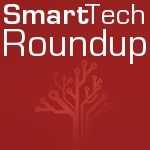SmartTech Roundup

Blended Schools & Tools
Rocky Mountain High-Access. Idaho announced the 30 school districts and two charter schools that will be the first to implement 1:1 laptops in the next two years (they’ll join Maine secondary schools, 40% of South Dakota high schools, a third of Iowa districts, as well as countries like Portugal, Uruguay, and Turkey that have all figured out how to go 1:1).
Voice from the field. Teacher Sam McElroy reflects on a year of blended learning and his conversion from a blended learning skeptic to believer.
Concerns from Christensen’s Crew. Innosight Institute’s Heather Staker offers warning signs for personalized learning and asserts that “the trouble is that digital technology is a huge category, and many do not bother to unpack it.”
Individualizing Instruction, Interactively. BostonInno notes that learning becomes less and less tethered to a physical classroom, GatherEducation provides a comprehensive solution to online learning with an emphasis on collaboration by using Microsoft Kinect to create a virtual learning classroom.
Founders on the Future. GigaOm reported that startups disrupting education aren’t profitable yet, but as online education gains momentum, the industry’s top innovators are confident that’s going to change.
It was only a matter of time. The Association of American Publishers has released a report with the news that E-Book Revenues Beat Hardcovers for the First Time.
Buzz. Buzz. LearNYC Swarm is an experiment to establish a seamless 24/7 learning experience for youth that incorporates what they’re learning in school, the interests and passions they pursue on their own time, and family involvement, in a context that leverages the city as a “learning gameboard.”
Cash for Coding! Codeacademy, the free website that offers weekly computer programming lessons to users raised $10M in venture capital investments and is “angling to become computer programming’s” Rosetta Stone according to EdWeek.
The Big “D”
No brass ring. eSchool News reviewed the useful new SIIA report on interoperability standards, but we still have lots of work to do. The sector still does not have Common Core micro-standards that will allow hundreds of providers to tag content and assessment in a common and comparable way. Aimee Guidera, Data Quality Campaign, shares our concern as do all of the startups that want to play in the big leagues. We need a couple partners with some gravity to land on standards and do it soon–we’re wasting time!
Scale Computing launched HC3, which converges servers, storage, and virtualization software in one stack for improved virtual computing and data storage.
What’s in the cloud? Michael Vizard at Slashdot told us about the rise of API in the cloud this week for cost-savings, big data storage and more in his article “The Rise of the API Economy in the Cloud.”
Steamy STEM Gems
A Hands-down problem with hands-on learning. EdWeek reports that the nation’s first-ever national assessment of hands-on science shows that students’ understanding of concepts and applications is limited since students failed to demonstrate a deep understanding of science concepts when they performed activity-based science tasks and investigations.
A STEM Boost in Beantown. Vertex Pharmaceuticals announced a collaboration with Boston Public Schools to enhance science education including a 3,000 square foot learning laboratory and more than $1M to to support a range of activities aimed at enhancing science, technology, engineering and math (STEM) education.
Getting to the Core
Share and Share Alike. With the launch of Share My Lesson, teachers will be able to access a new online portal that is expected to contain more than 100,000 user-generated materials thanks to a partnership with AFT and and British publishing firm TSL Education, who invested $10M to create the repository of CCSS-aligned materials.
And the winner is… In a highly competitive process, the National Math and Science Initiative (NMSI) was unanimously selected to lead the Educator Leader Cadres (ELCs) for the Partnership of Assessment of Readiness for College and Careers (PARCC) state consortium.
What are the next steps? Tom Segal from HuffPo encouraged us to continue to evaluate exactly how the Common Core will be implemented in his article “Rethinking the Learning Experience: Part II.”
CompassLearning helps teachers navigate the Common Core. CompassLearning announced the 2012 version of Renzulli Learning™ that will to empower teachers to prepare students for State and Common Core Standards and assessments by providing resources that develop students’ critical thinking and reasoning skills and college-career readiness.
Come On Get App-y
Here comes the App, Do-Do-Do-Do. FeeFiFoFun announced the launch of its “Flutterby Butterflies” an interactive game teaching colors, ABCs and first words that is designed to prepare toddlers to learn to read and features original artwork by legendary Beatles illustrator, Alan Aldridge.
High-Tech Natural History. Apps bring museum study to life for U.K. grad students as touchscreen tools brings students and curators together.
Now that’s a great question. KinderTown announced a new initiative for developers called KinderSights that will offer up a series of monthly reports based on internal data to answer the question: “What apps are parents looking for right now?”
Holiday shopping in June? Top-selling kids tablet maker LeapFrog announced the release of the LeapPad2.
Higher, Deeper, Further, Faster Learning
Lighting a new path. Digital portfolio company Pathbrite announced that it secured $2.5 million in funding led by Rethink Education with a strategic investment from U.S. college and career readiness assessment company ACT to “to liberate data about learners that is now typically held by colleges.”
Gates’ grantees go for the gusto! The Gates Foundation announced the recipients of more $9M in grants to a range of higher education innovators, including EDUCAUSE, MyCollege Foundation, edX, CUNY, University of the People, and the League for Innovation in the Community College. The Chronicle reports that the pool of recipients indicates the Gates Foundation is focusing on making sure new online alternatives tie into mainstream higher-education system.
National implications. The new EdSector report: Ready by Design: A College and Career Agenda for California takes a look at why the current accountability system isn’t producing students who are graduating from high school ready for college and careers, revealing important implications for every state.
CAP on CBE. Andrew Valent, blogging for Competency Works, shares his thoughts on the Center for American Progress event on Competency Based Education and the first steps toward a competency-based system of higher education.
Eart credit for what you already know. Gov. Scott Walker and two top University of Wisconsin (UW) System officials unveiled the new UW Flexible Degree self-paced, competency-based program for finishing a college degree online that will make college more affordable and accessible (and will compete with WGU and startups like University Now).
India is democratizing education. Harvard University and the Massachusetts Institute of Technology teamed up to form edX to allow anyone with a laptop or tablet to take an online course.
What’s the truth about online learning? Penn Foster Campus published an article dispelling the myths of online learning through the experience and outcomes of its students.
Interact on iTunes U. Stanford’s Social Network for Class and Piazza announced plans to use iTunes U for student interaction with professors, teaching assistants and other students in real time in one of its online courses.
Movers, Shakers & Ground-breakers
Blended Learning has arrived. Next Generation Learning Challenges (NGLC) announced its second round of grants to innovative high school and college programs. The $4.5 million in grants will be shared by eight high school recipients, mostly charter networks, and four colleges. Tom reported on the winners from his perspective as a reviewer on our blog and the HuffingtonPost.
A digital leader calls for more digital leadership. Foundation for Excellence in Education Founder Jeb Bush asserted it will take leadership to transition to a digital age in education.
Alex Hernandez from Charter School Growth Fund told us education is love story, shaking up the future of education with two primary conversations around creativity and personalization of learning.
Exposing youth to American culture. The U.S. government announced plans to partner with Amazon to provide Kindle e-reader devices, which will come equipped with instructional applications for English language and other resources, for young people worldwide through the “Kindle Mobile Learning Initiative.”




0 Comments
Leave a Comment
Your email address will not be published. All fields are required.